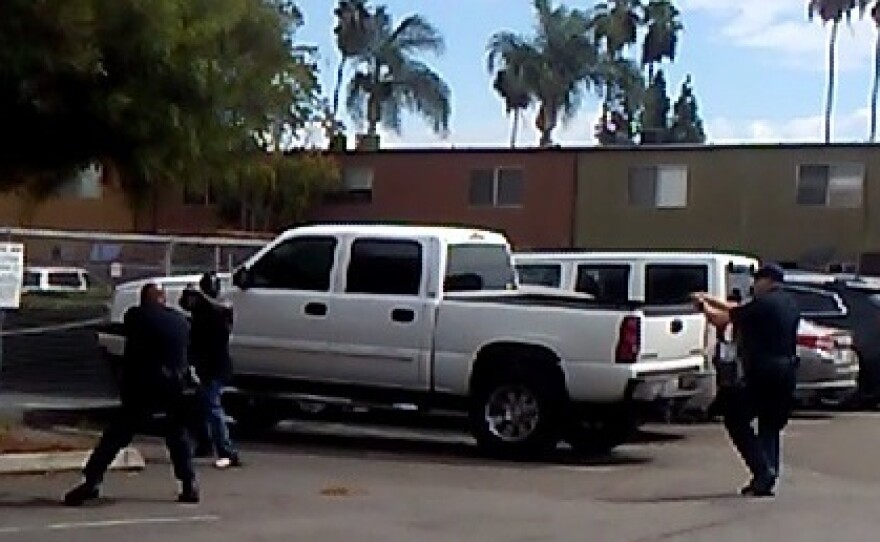The El Cajon Police Department has multiple videos of Tuesday's fatal shooting by a police officer of Alfred Olango, a refugee from Africa, but police say they do not have the authority to release it to the public.
Police Chief Jeff Davis told reporters Tuesday night that the videos fell under a policy announced two months ago stipulating that videos of "officer-involved shootings" are to be kept secret as long as they are part of an open criminal investigation.
Related Stories
• El Cajon Police Shooting: Protests Erupt; Man Fatally Shot Identified
• Mostly Peaceful Protests In El Cajon After Police Shoot Unarmed Man
• Researcher: El Cajon Shooting Victim May Have Been Mentally Ill
• El Cajon Officer Involved In Deadly Confrontation Was Sex-Suit Target
• Police Took Over 1 Hour To Respond, About 1 Minute To Shoot
"This is considered evidence," Davis said. "And until it is deemed otherwise, it will be under the control of the district attorney's office."
The policy presumes that making the videos public early on could potentially bias the jury pool and deny a defendant's right to a fair trial.
The police did release a single screenshot from one of the videos, showing the two officers who responded to the 911 call pointing their weapons at Olango. Olango's arms appear to be outstretched, but it is not clear whether he was pointing them at the officers or raising or lowering his hands.
Police say Olango had reached into his pocket, pulled out an object and pointed it in a "shooting stance." Some eyewitnesses said they saw Olango with his hands raised.
Dan Gilleon, a lawyer retained by Olango's family, said the district attorney's office was selectively releasing evidence to spin the media against the victim.
"It's completely unfair for them to be using a single still image that is completely one-sided and gives them the talking point of, 'compliance. You can't point something at an officer and expect to live,'" he said. "All those talking points are created by that single still image. There's ... a number of different questions that we have that would be answered by that video."
Gilleon also said it was ironic that the DA's office would claim the video should be kept secret to not bias the jury pool, while still releasing an image that could bias the public in favor of the police and against the victim.






